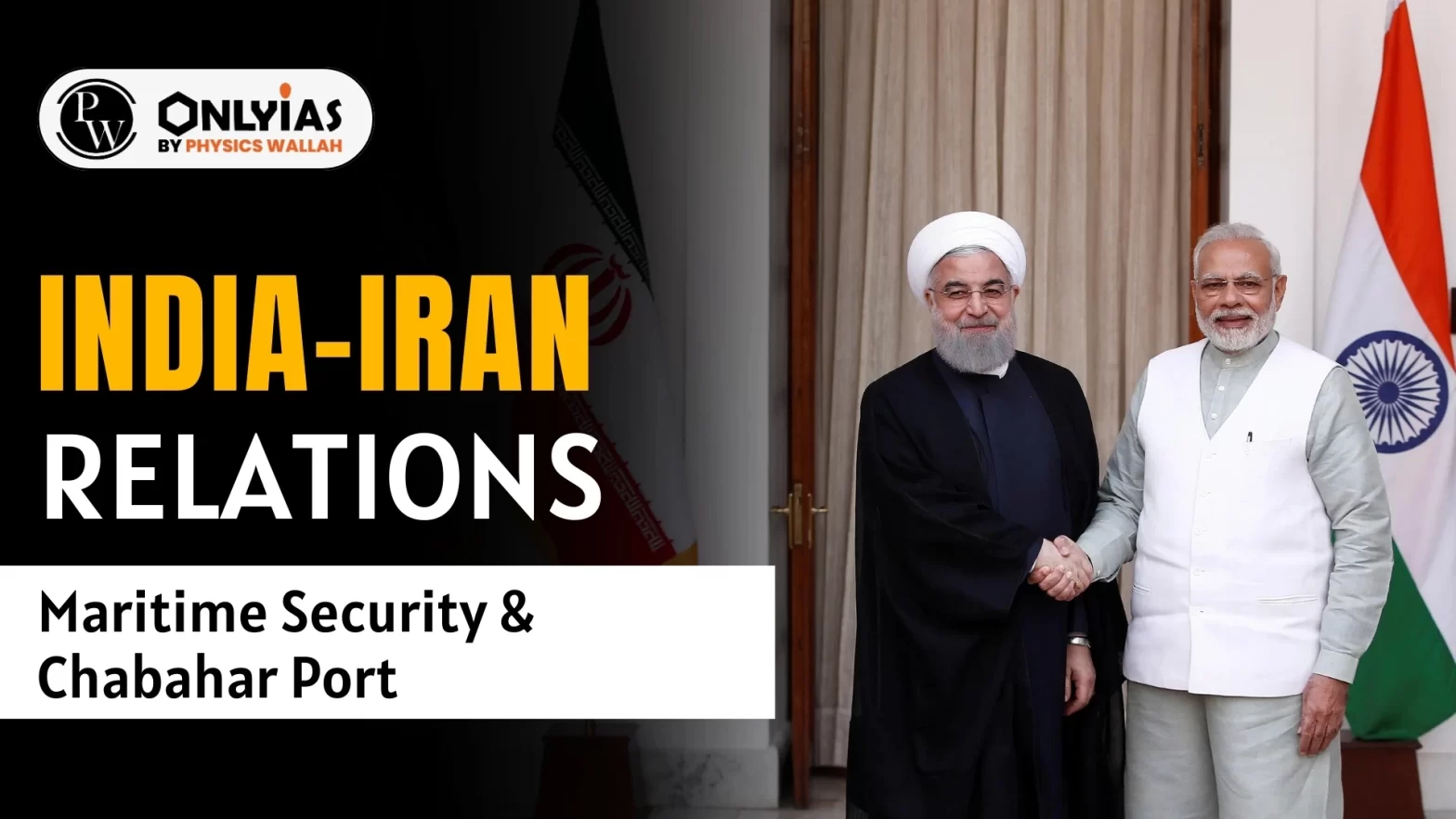Context:
This editorial is based on the news “Jaishankar in Iran, discusses Chabahar, Red Sea attacks” which was published in The Financial Express. The External Affairs Minister of India visited Iran during the ongoing high-level exchanges.
- Recently, Pakistan announced that it conducted an “intelligence-based operation” against hideouts of armed groups in the Sistan-Baluchistan province of Iran.
Continue To Read: Iran-Pakistan Crisis In Balochistan
India’s Foreign Minister S Jaishankar in Iran: Key Highlights of the Visit
- Maritime Security Concern: Addressed concern about threats to regional maritime shipping.
- Chabahar Port Development Plan: An agreement between India and Iran was signed.
- The new long-term agreement will replace the original contract (renewed yearly), which only covered India’s operations at the Shahid Beheshti terminal in the Chabahar port.
- The new agreement has a validity of ten years and will be automatically extended.
- Proposal for Joint Transportation Committee: It will help to expand cooperation. It will enable the activation of transit capacities and the use of the North-South corridor.
- Humanitarian Focus on Gaza Situation: India expressed concern about the deeply concerning situation in Gaza, focusing on the loss of civilian lives, especially women and children.
- Other Areas Of Discussion: Combating terrorism and organized crime; to establish stability and security in Afghanistan; strengthening international trade, especially in national currencies.
Continue To Read: India-Iran Talks On Chabahar Port, Red Sea Security
India-Iran Relations: Political, Economic, and Cultural Ties
- Historical Relation: India-Iran Relations back to the ancient times of Indus Valley civilization and trade between the coast of southern Iran and India through the Persian Gulf and the Arabian Sea.
- Political Dimension: Signed a friendship treaty on 15 March 1950. The Tehran Declaration was signed that shared a vision for an “equitable, pluralistic and cooperative international order.
- Geo Strategic Location: Iran’s unique geographical position provides India access to Central Asia, Afghanistan, and Eurasia markets.
- Energy Security: Iran ranks 2nd globally in terms of gas reserves, presenting an opportunity for fuel diversification, decarbonization, and share of gas in India’s energy mix until 2030.
- Economic Ties: Bilateral trade was US$2.5 bn in 2022, reflecting an increase of 48% from 2021.
- Indian Exports: Sugar, man-made staple fibers, electrical machinery, and artificial jewelry.
- Indian Imports: Dry fruits, chemicals, and glassware.
- Iran included India in the list of countries whose citizens will not require a visa to travel.
- People-to-people and Cultural Ties: The Indian Cultural Centre was established in 2013 and renamed the Swami Vivekananda Cultural Centre (SVCC) in 2018, India recently decided to include Farsi as one of the nine classical languages under the New Education Policy.
Challenges in India-Iran Relations
- US Sanctions on Iran: US sanctions have impacted Iranian oil exports and hindered Indo-Iranian cooperation on the development of Iran’s southeastern Chabahar Port.
- China Factor: China has strengthened its relations with Iran by signing a 25-year comprehensive cooperation agreement. It has been consistently purchasing Iranian oil despite U.S. sanctions.
- Israeli Factor: India has close ties with Israel. It is a challenge to balance its relations with Iran.
- Security Concern: Iran supports Hamas, Hezbollah, and Houthis rebel groups. Recently, Iranian ammunition targeted a tanker- MV Camp Plato creating challenges for Indian maritime shipping.
- Afghanistan Issue: The US withdrawal from Afghanistan created challenges for India’s Afghan strategy which relied on US-Iran cooperation for its Afghan interests.
Way Forward to the India-Iran Relations
- Ensuring Energy Security: India should take the lead for institutional framework and advance the Turkmenistan–Afghanistan–Pakistan–India (TAPI) gas pipeline project for energy security.
- Enhancing Trade: India needs to decrease the tariffs on Iranian agricultural goods through Preferential trade Agreements to enhance bilateral commercial ties.
- Infrastructure Cooperation: Investment in Iranian oil and petrochemicals, development of sea lines and the export of technical and engineering services will expand bilateral trade.
- Curbing Terrorism: Both nations need to cooperate to fight terrorism and to create peace, stability, and security in the region.
- Boosting Connectivity: Both should promote joint efforts with the Russian Federation and other Central Asia and Caucasus countries to upgrade existing transport corridors.
- Enhancing Regional Cooperation through Multilateral Forums: India can utilize BRICS and Shanghai Cooperation Organization platforms to discuss important regional issues.
![]() 18 Jan 2024
18 Jan 2024

